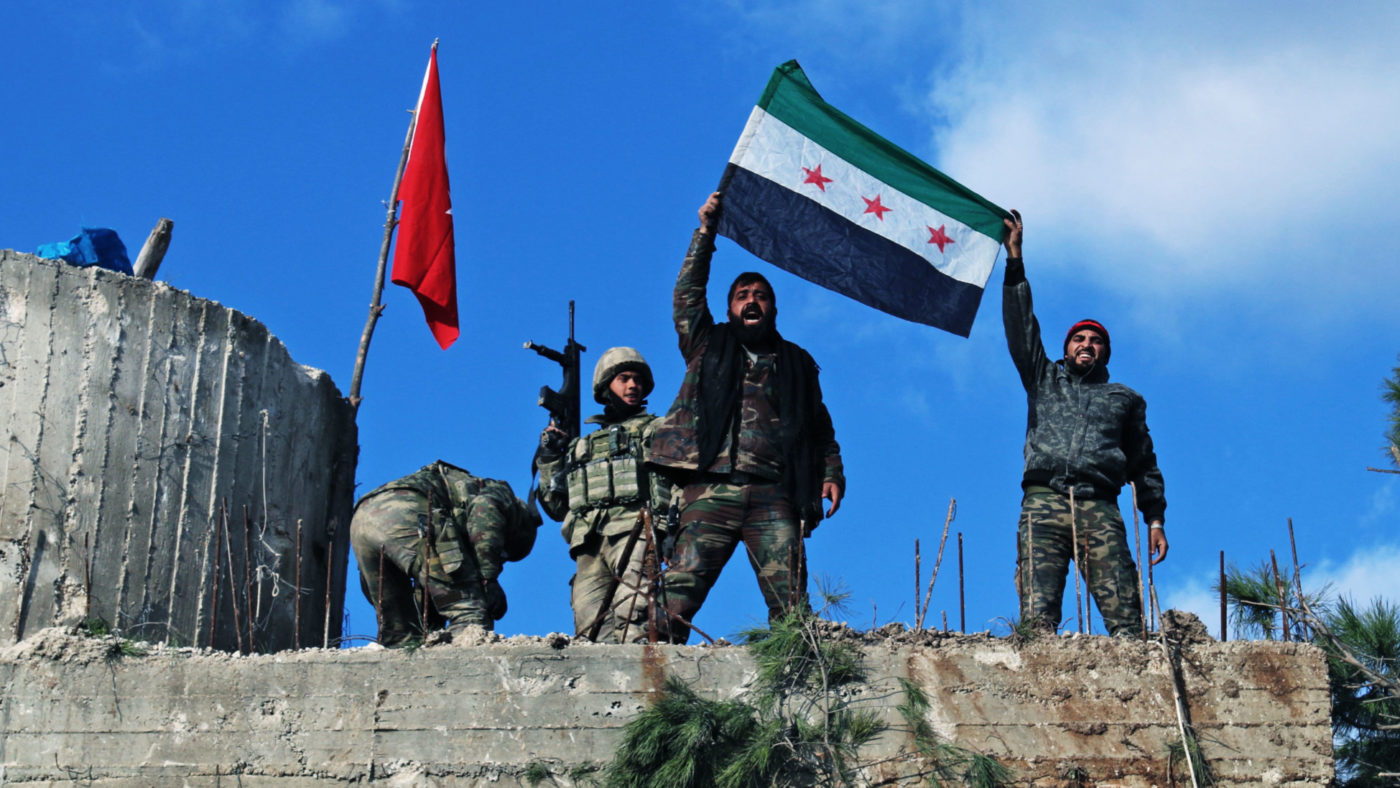In some ways the Islamic State (ISIS) seemed to be a perfect enemy. Its initial success was so shocking, its modus operandi so brutal, that it focused minds across the world. The creation of a violent, theocratic statelet threatened not only the innocents within its areas of operation, but by implication every state. ISIS seemed a common enemy par excellence.
The problems inherent in such a conclusion were obvious from the beginning. As the fight against ISIS became a cause célèbre, unsavoury forces attempted to make use of the conflict. The regime of Bashar al-Assad in Syria, which had committed and continues to commit crimes comparable to those of ISIS, soon began a campaign designed to paint the dictator as a sworn enemy of the jihadists.
Assad’s allies and protectors, Russia and Iran, did the same. Each killed innocents in Syria indiscriminately, while posing as the Syrian civilian’s true friend.
This attempt to muscle in on the conflict was resisted, almost successfully. Though Assad and his allies reaped PR rewards from ostensibly “fighting ISIS”, especially on social media, Iran, Russia and the Syrian regime were excluded from the Global Coalition of over 60 countries which was drawn up to oppose ISIS officially.
But there were tensions within the coalition. Though the United States provided most of the hardware and led the aerial campaign, the fighting on the ground was done by a network of local forces, who served as proxies.
In Iraq, the state received much coalition support. But so too did affiliated militias, many of them openly sectarian and backed by Iran, arranged under the People’s Mobilisation Forces (PMF) label. In the north of the country, Kurdish peshmerga, fighting for the Kurdistan Regional Government (KRG), liberated territory which had belonged to the KRG and some which had previously fallen under Iraqi state control.
In Syria, the Americans again relied on Kurdish proxies, this time supporting the People’s Protection Units (YPG), the military wing of the Democratic Union Party (PYD), as well as some Syrian rebel groups.
These proxy forces were never perfect, and often looked likely to fight among themselves. The United States and others were able – just – to keep the coalition unified while ISIS remained a threat to all.
But now things have changed. ISIS is in retreat.
The anti-ISIS coalition, always precarious, has collapsed. In Syria, this has led to open conflict between Turkey, a Nato ally of the United States, and America’s YPG proxies.
The PYD is closely related to the Kurdish Workers’ Party (PKK), a Marxist guerrilla movement and designated terrorist group which has orchestrated campaigns of violence within Turkey. In Syria, the YPG hopes to establish a federated territory in the north, which it has called Rojava.
Turkey, understandably wary of its PKK links, fears the YPG will establish a base from which Kurdish terrorists can organise attacks.
During the anti-ISIS conflict, the US depended extensively upon the YPG, as part of the Syrian Democratic Forces (SDF), to capture territory previously held by ISIS. This included the city of Manbij and, ultimately, ISIS’s de facto Syrian capital, Raqqa.
This caused Turkey much anguish. It had attempted to reach Raqqa itself with a force of friendly Free Syrian Army (FSA) rebels in Operation Euphrates Shield, which was successful in capturing and holding territory – for example Jarablus. But the Turks and their allies could not get to Raqqa fast enough for the Americans, who decided that the SDF would be a better bet, and made it impossible for rival Raqqa operations to begin.
After ISIS was driven out of urban centres, and as talk of Kurdish federalism in northern Syria began to look serious, Turkey realised it could not tolerate the presence of an enemy on its southern border. After Operation Euphrates Shield, it moved troops into Idlib (ostensibly to combat jihadists, such as the al-Qaeda affiliated alliance Hayat Tahrir al-Sham). Now it has tried to take Afrin.
Turkey and its FSA allies have material advantages over the YPG in Afrin, but have been held back by poor conditions. This will not stop the fighting. Nor will outside intervention, of the sort the Kurds had counted upon when its leaders appealed to the United Nations and the world. This is why one Kurdish YPJ (Women’s Protection Units) fighter has apparently committed a suicide bombing to destroy a Turkish tank.
This leaves the Americans in an unfortunate position. Turkey is a Nato ally but is behaving badly. The YPG is an American proxy. Mediation would have little effect.
The two will fight in Afrin, and it is possible the conflict will become more widespread. The apparent defeat of ISIS has not ended the bloodshed in Syria and Iraq. The collapse of the caliphate may yet presage the collapse of the coalition built to destroy the Islamic State, but not to last.


